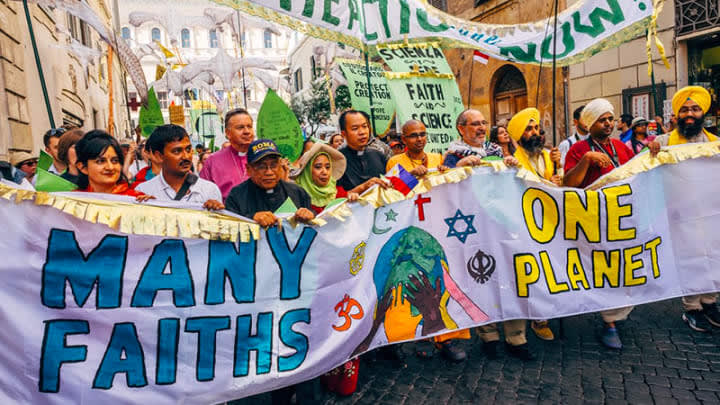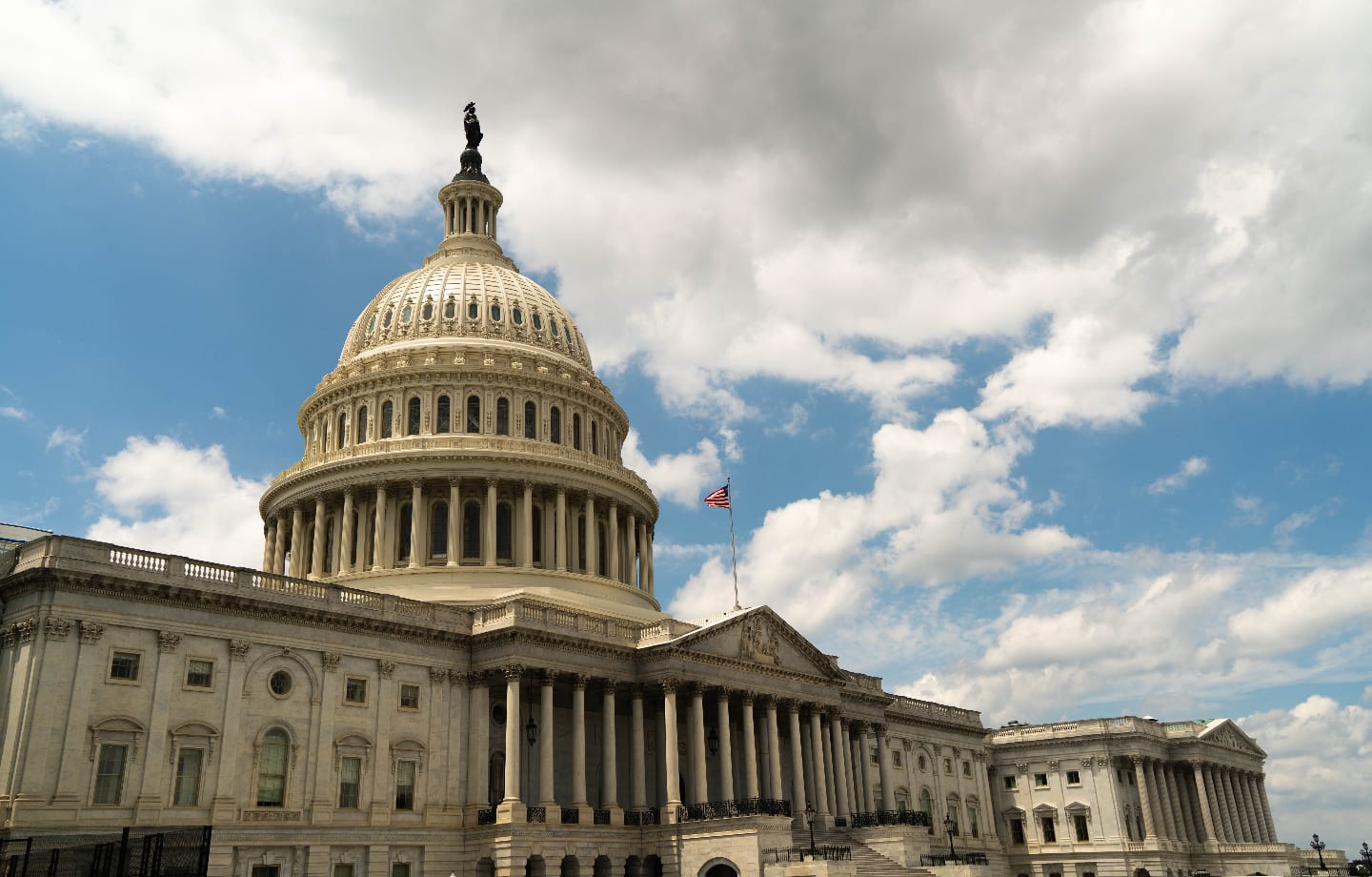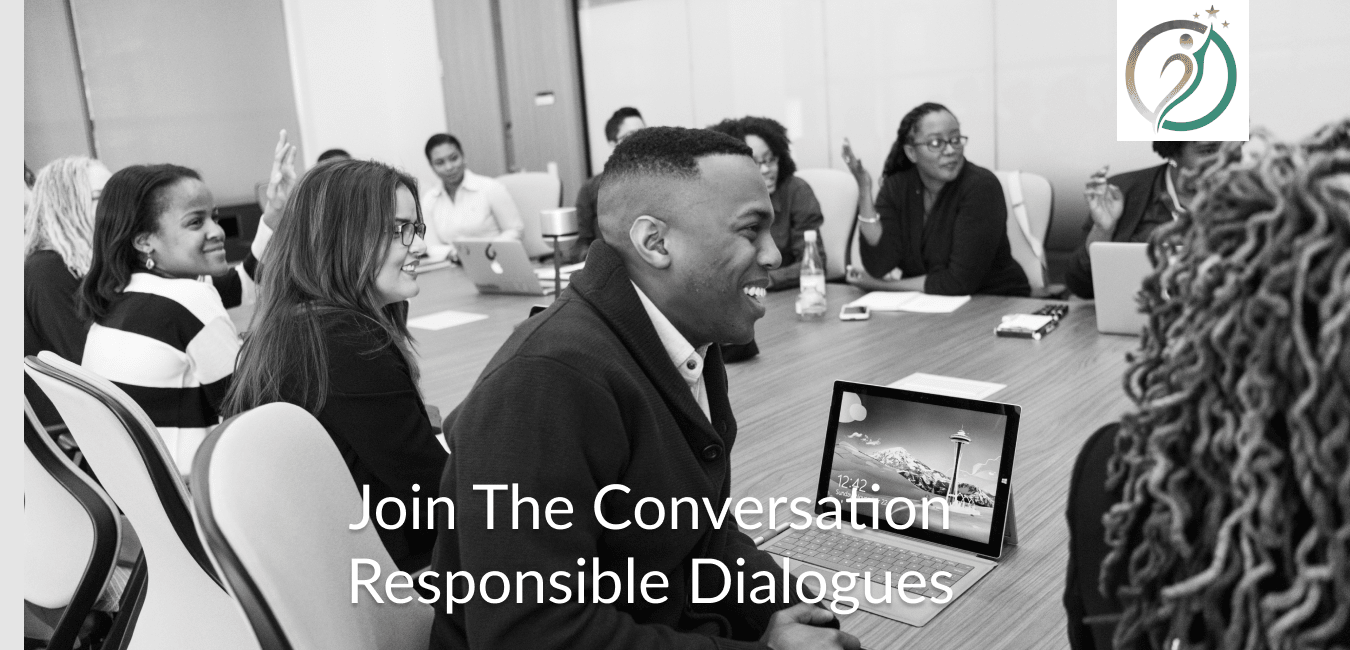
Responsible Leadership in a Global Context
Join us and make your voice heard!
In today's interconnected world, the role of leadership has transcended traditional boundaries, calling for a more profound commitment to everyone becoming responsible leaders. As individuals traverse the complexities of the world, they encounter the multifaceted tapestry of diverse cultures, economic terrains, and social landscapes. This prompts a fundamental transformation in how we approach leadership, understanding motivations to encompass broader considerations, awareness of social responsibility and sustainability. Whether in personal growth, spiritual exploration, community engagement, or any other facet of life, embracing the tenets of responsible leadership becomes essential for navigating the intricate web of our lives.
Incorporating the tenets of responsible leadership into our lives
Incorporating the tenets of responsible leadership into our lives involves a conscious and intentional commitment to certain guiding principles. Firstly, cultivating self-awareness is crucial—a deep understanding of our values, strengths, and areas for growth allows us to lead authentically. It also involves embracing empathy and actively considering the perspectives and needs of those around us, fostering inclusive decision-making. Responsible leadership extends beyond personal boundaries to encompass ethical behavior in all our interactions, promoting transparency and accountability. Moreover, a commitment to lifelong learning helps us adapt to evolving challenges and opportunities, reinforcing our ability to lead responsibly. By incorporating these principles into our daily lives, we not only enhance our own leadership capabilities but also contribute positively to the well-being of the communities and environments we engage with.
Understanding Responsible Leadership
Responsible leaders adopt a comprehensive perspective that evaluates the repercussions of choices not only on those they directly impact, but also on the broader spectrum of stakeholders and the greater community. This holistic approach extends beyond any specific domain, acknowledging the interplay between personal actions and the well-being of society at large. A responsible leader, in any context—be it personal relationships, community engagement, or broader societal impact—understands the importance of ethical conduct, transparency, and accountability as foundational elements for building trust among individuals and fostering a harmonious collective.
Global Challenges and Opportunities:
Leaders operating in a global settings encounter a myriad of challenges, from differing regulatory frameworks to cultural nuances. In such a dynamic landscape, responsible leadership becomes a guiding force for navigating these challenges while seizing opportunities for positive impact. Embracing diversity and inclusion, both within the organization and in external relationships, is crucial for building a sustainable global presence.
The development of new global digital communication platforms helps to bridge geographical gaps but also brings about unique obstacles, particularly in regions where bandwidth is slow or where the risk of call disconnection is high.
Responsible leadership in this context involves not only addressing traditional challenges but also embracing the opportunities and complexities that arise from the virtual realm. Leaders must navigate these technological nuances while upholding values of inclusivity and adaptability to ensure effective communication and collaboration, thereby contributing to a sustainable global presence that transcends the limitations imposed by virtual connectivity issues.
Environmental Stewardship
In the face of global environmental concerns, individuals assuming responsible leadership roles emerge as key influencers in championing sustainable practices. Whether in personal lifestyles, community endeavors, or broader societal initiatives, leaders must prioritize actions that contribute to the overall health of the planet. This commitment extends beyond specific domains, encompassing endeavors such as reducing individual carbon footprints and adopting eco-friendly technologies. Such initiatives not only resonate with the increasing call for environmentally conscious practices in various spheres but also position the collective as responsible global stewards, irrespective of the context in which they operate.
Social Responsibility and Community Engagement
Responsible leadership extends to encompass social responsibility and community engagement. Global leaders have the power to influence positive change by investing in social initiatives, supporting local communities, and addressing societal issues. Corporate social responsibility (CSR) is no longer an option but an integral aspect of building a reputable and sustainable global brand.
Building Trust and Reputation
Trust is a currency that holds immense value in the global marketplace. Responsible leaders understand that trust is earned through consistent ethical behavior, transparency, and a genuine commitment to social and environmental stewardship. By prioritizing these values, leaders can build a strong reputation that transcends borders and resonates with stakeholders worldwide.
Decision Making
Responsible leaders operate in a complex and interdependent global landscape. Their decision-making process goes beyond immediate gains, considering the implications on diverse stakeholders, ranging from employees and customers to the communities and the environment. In a world where information travels rapidly, responsible leaders embrace transparency, ensuring that decisions are not only ethically sound but also communicated openly.
In global decision-making, responsible leaders seek to foster collaboration and inclusivity. They recognize the importance of diverse perspectives and actively work towards creating an organizational culture that values and integrates different voices. This approach not only leads to better decision outcomes but also strengthens the organization's adaptability to diverse global markets and challenges.
Constructive Actions
Responsible leadership promotes actions that contribute positively to societal and environmental well-being. Instead of engaging in practices that exploit resources or perpetuate inequalities, responsible leaders focus on sustainable strategies. This includes embracing innovation, adopting eco-friendly practices, and promoting social responsibility as integral parts of the organization's mission.
A global perspective in constructive actions also involves recognizing and addressing social issues. Responsible leaders understand their role in promoting equality and diversity, both within their organizations and in the broader societal context. By actively participating in social initiatives and advocating for positive change, these leaders contribute to building a better world.
Conviction Over Convenience
Leadership decisions are often shaped by the principles of convenience, driven by short-term gains and expediency. However, responsible leaders, especially on a global scale, prioritize conviction over convenience. They adhere to ethical standards and moral principles even when faced with challenging circumstances, ensuring that their actions align with a strong sense of purpose and integrity.
In a global context, where cultural, ethical, and legal landscapes vary significantly, responsible leaders navigate the complexities with a steadfast commitment to their convictions. This not only fosters trust among stakeholders but also establishes a consistent and principled organizational identity that transcends geographical boundaries.
Responsible Leadership in Times of Crisis
Crises, whether economic, environmental, or health-related, are inevitable. Responsible leaders rise to the occasion, demonstrating resilience, empathy, and a commitment to the well-being of their stakeholders. During crises, responsible leaders prioritize the health and safety of their teams, adapt quickly to changing circumstances, and communicate transparently about the challenges and steps being taken to address them.
On a global scale, responsible leaders collaborate with governments, NGOs, and other organizations to contribute to collective crisis response efforts. They recognize the interconnectedness of global challenges and work towards solutions that extend beyond the immediate needs of their organizations.
Join the Conversation
What are examples of responsible leadership that have inspired you? How can you incorporate responsible leadership into your day to day work, life and community? Join us in the discussion.
TRENDING
-
 Introducing The Centre for Responsible LeadershipAn initiative dedicated to assembling global thought leaders to find sustainable solutions to the major challenges plaguing our read more...
Introducing The Centre for Responsible LeadershipAn initiative dedicated to assembling global thought leaders to find sustainable solutions to the major challenges plaguing our read more... -
 Featuring: Responsible DialoguesThis is a unique time to reflect and re-tool our efforts. CRL has decided to launch a Virtual/Digital Impact Hub to convene read more...
Featuring: Responsible DialoguesThis is a unique time to reflect and re-tool our efforts. CRL has decided to launch a Virtual/Digital Impact Hub to convene read more... -
 Restoring Civility to Public DiscourseHow did things go so far off the rails? Partisanship is as old as the Republic, and yet for most of our history, the process read more...
Restoring Civility to Public DiscourseHow did things go so far off the rails? Partisanship is as old as the Republic, and yet for most of our history, the process read more...